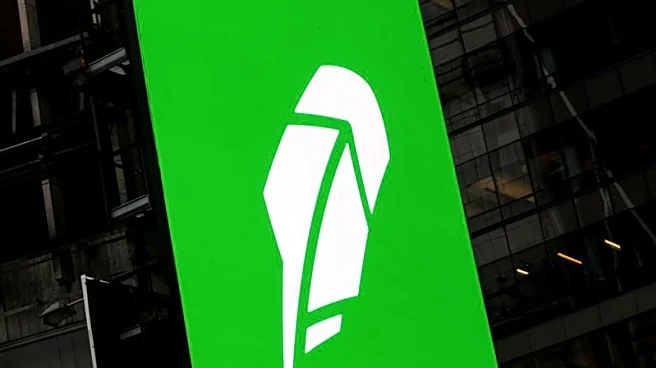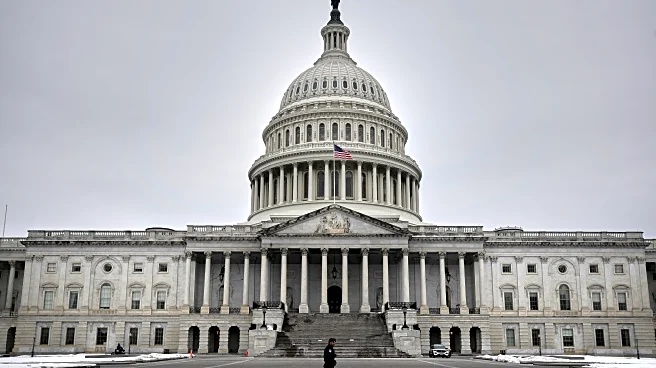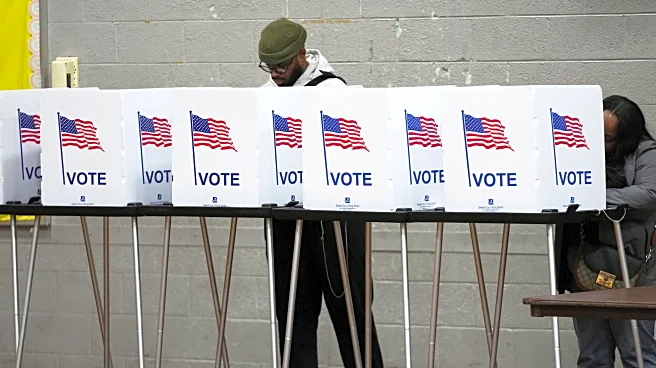Rapid Read • 9 min read
As the back-to-school season approaches, American families are increasingly turning to pawn shops to find affordable school supplies. This shift is largely driven by concerns over tariffs that have raised prices on imported goods such as clothing and shoes. According to the National Retail Federation, families plan to spend about 2% less this year compared to last year. Pawn shops, offering items like sneakers, laptops, and musical instruments at significantly reduced prices, have become a popular alternative. Les Gold, owner of American Jewelry and Loan, notes that the economic situation is prompting more people to seek better deals at pawn shops. Tariffs have increased the cost of key back-to-school items, with shoe prices rising by 1.4% in July. However, pawn shops offer these items at up to 50% less than major retailers, according to EZPawn, which has seen a 4% increase in merchandise sales last quarter.
AD
The growing reliance on pawn shops for back-to-school shopping highlights the economic pressures faced by American families. Tariffs on imports from countries like China, Vietnam, and Cambodia have made traditional retail options less affordable, pushing consumers to seek alternatives. This trend underscores the broader impact of trade policies on everyday expenses and consumer behavior. Pawn shops, which sell pre-owned, tariff-free merchandise, provide a crucial lifeline for families struggling with budget constraints. The increase in pawn shop activity may also serve as an economic indicator, suggesting that many Americans are facing financial difficulties. This shift could have implications for retail strategies and consumer spending patterns, as families prioritize cost savings over brand-new purchases.
The continued rise in pawn shop patronage could prompt traditional retailers to reassess their pricing strategies and explore ways to compete with the affordability offered by pawn shops. As tariffs remain a factor, businesses may need to find innovative solutions to attract budget-conscious consumers. Additionally, the economic challenges driving this trend may lead to increased advocacy for policy changes that address the impact of tariffs on consumer goods. Stakeholders, including retail associations and consumer advocacy groups, may push for measures to alleviate the financial burden on families, potentially influencing future trade negotiations and economic policies.
The reliance on pawn shops for back-to-school shopping raises questions about the long-term sustainability of this trend. While pawn shops offer immediate relief, they may not be able to meet all consumer needs, especially for new or specialized items. This situation also highlights the broader issue of economic inequality, as families with limited access to credit or loans turn to alternative sources for essential purchases. The increased demand for pawn shop services could lead to changes in the industry, such as expanded inventory or enhanced customer service, to better accommodate the needs of struggling consumers.
AD
More Stories You Might Enjoy












